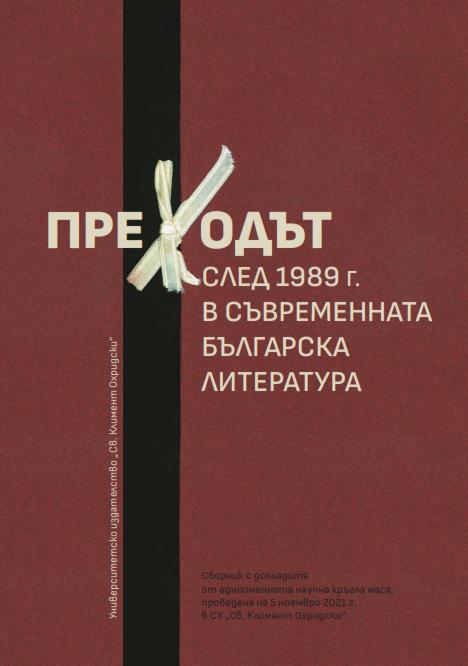Трилогията на Виктор Пасков („Балада за Георг Хених“, „Германия, мръсна приказка“, „Аутопсия на една любов“) и преходът
Victor Paskov’s Trilogy (A Ballad for Georg Henih, Germany – A Dirty Tale, Postmortem of a Love) and the Transition
Author(s): Boris Minkov
Subject(s): Language and Literature Studies, Studies of Literature, Bulgarian Literature, Philology
Published by: Софийски университет »Св. Климент Охридски«
Keywords: the artist’s world; ghetto; collective bodily presence; dulling of the senses; Transition and Globalization
Summary/Abstract: The topic, as well as the aim of the project to examine the interconnections between the Transition and literary models, presupposes two different kinds of relations: firstly, the presence or the marked absence of the concept of the Transition in Paskov’s novels and their narrative perspectives, and secondly, the publication and the reception of these works in the social environment of a transition (1987–1992–2005). The purpose of the paper is to rethink the mutual historical positioning of the three novels and to sketch out a possible common direction of their interaction. A key to such an interaction can be found in the individual’s indelible bodily co-presence in the ghetto represented though its forms of mimicry in the communal life in the neighbourhood (A Ballad for Georg Henig), the artistic gastarbeiter dormitory (Germany – A Dirty Tale) and the “global henhouse” of the ultramodern world (Postmortem of a Love). Always and everywhere, the ghetto entices the artist in its desire to ensnare, entrap and ultimately destroy him.
- Page Range: 202-216
- Page Count: 14
- Publication Year: 2023
- Language: Bulgarian
- Content File-PDF

